#paul cavanagh
Text

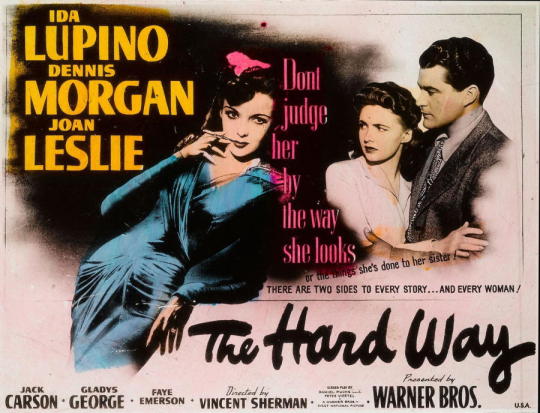
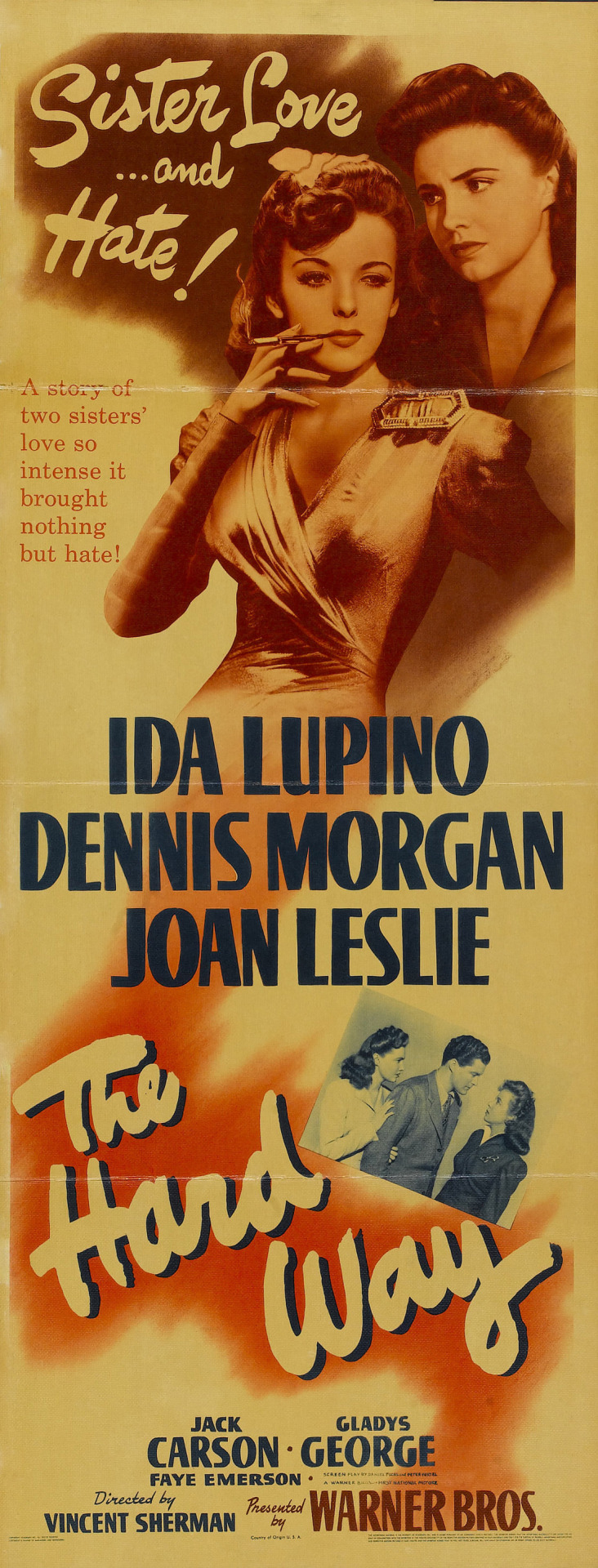
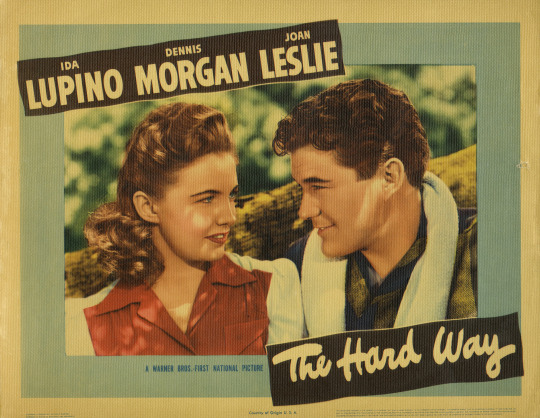
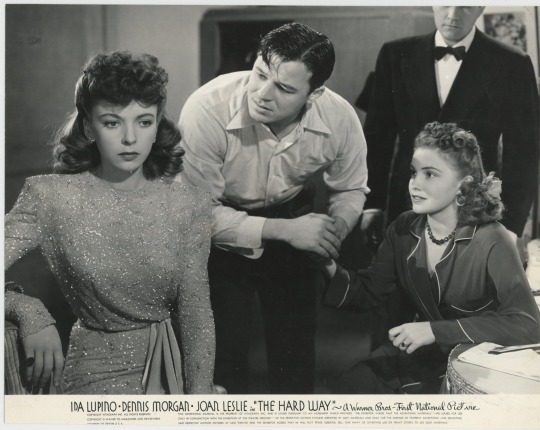
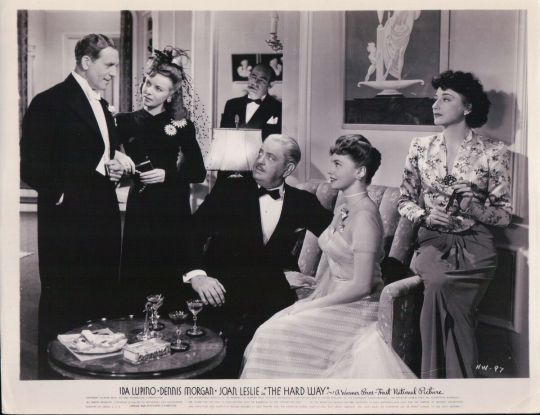
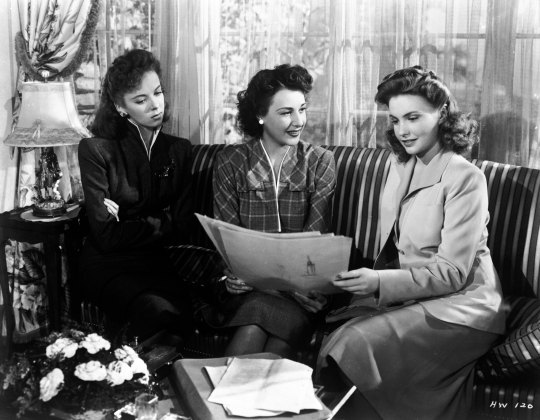
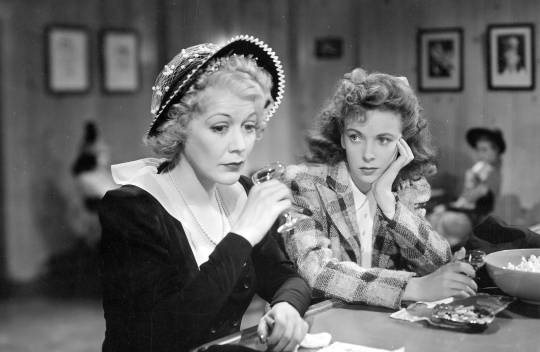
The Hard Way (1943) Vincent Sherman
January 28th 2024
#the hard way#1943#vincent sherman#ida lupino#joan leslie#dennis morgan#jack carson#roman bohnen#paul cavanagh#leona maricle#gladys george#nestor paiva
11 notes
·
View notes
Text
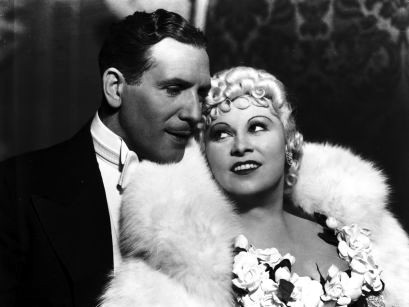
Paul Cavanagh-Mae West "Goin´to town" 1935, de Alexander Hall.
3 notes
·
View notes
Text
youtube
Ludus - Breaking The Rules
too many fools following too many rules
#ludus#breaking the rules#linder#ian devine#toby#paul cavanagh#dave formula#graham revell#new wave#post punk#art rock#7'' single#1983#Youtube
5 notes
·
View notes
Audio
Your deadicated hosts return with THE FOUR SKULLS OF JONATHAN DRAKE (1959) from director Edward L Cahn!
The film is said to be written, produced and directed to scare the daylights out of you -- but will it? And how do shrunken heads factor in here? Listen to find out!
Context setting 00:00; Synopsis 20:47; Discussion 33:39; Ranking 49:24
#podcast#the four skulls of jonathan drake#orville hampton#edward cahn#robert kent#united artists#eduard franz#valerie french#grant richards#henry daniell#jivaro#head hunting#shrunken head#maury gertsman#paul dunlap#paul cavanagh#edward mann#invisible invaders#horror#classic horror#b movie
5 notes
·
View notes
Text
The Virtuous Sin (1930)
The Virtuous Sin by #GeorgeCukor and #LouisJGasnier for #WalterHuston and #KayFrancis, "Francis brings grounded, intelligent class to what could easily be overplayed as tearjerking moral protestations", Now reviewed on MyOldAddiction.com
GEORGE CUKOR, LOUIS J. GASNIER
Bil’s rating (out of 5): BBBB
USA, 1930. Paramount Pictures. Screenplay by Martin Brown, scenario by Louise Long, based on the play by Lajos Zilahy. Cinematography by David Abel. Costume Design by Travis Banton. Film Editing by Otho Lovering.
The plot of this melodramatic soap opera is not one that will seem unfamiliar to viewers, but the way that its romantic…
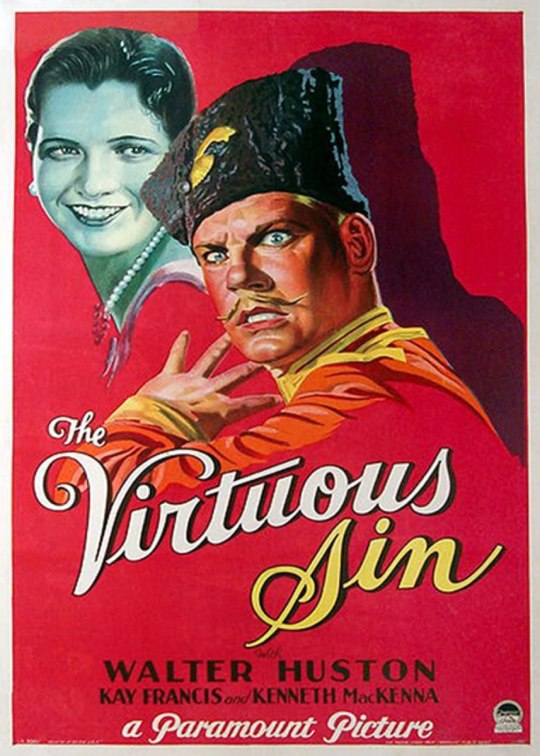
View On WordPress
#David Abel#Eric Kalkhurst#George Cukor#Gordon McLeod#Jobyna Howland#Kay Francis#Kenneth MacKenna#Lajos Zilahy#Louis J. Gasnier#Louise Long#Martin Brown#Oscar Apfel#Otho Lovering#Paramount Pictures#Paul Cavanagh#Travis Banton#Victor Potel#Walter Huston#Youcca Troubetzkov
4 notes
·
View notes
Text
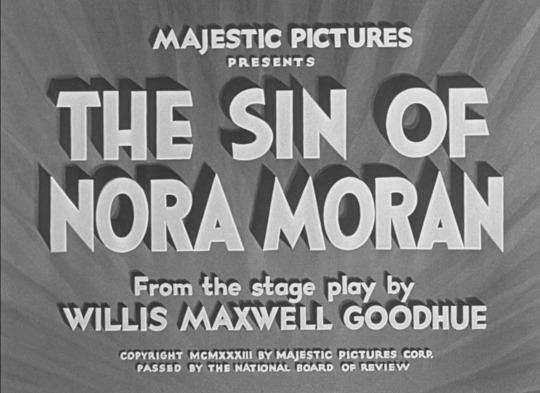




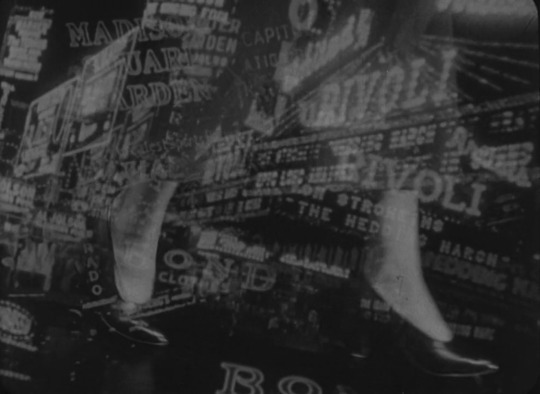
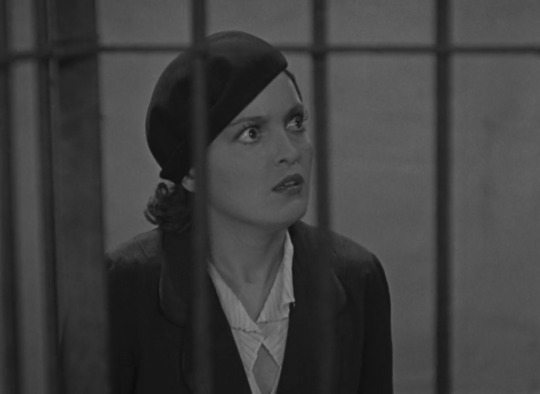
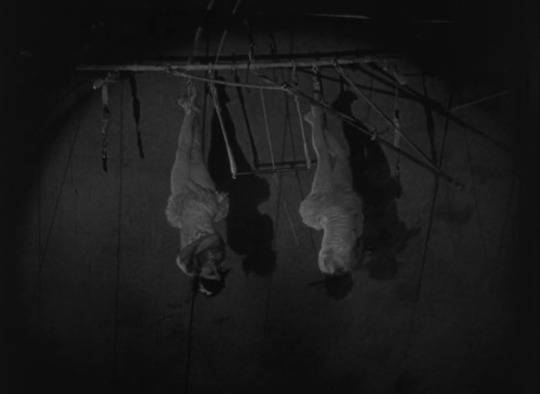


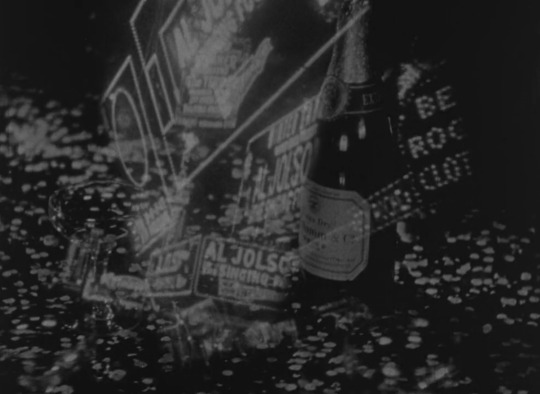


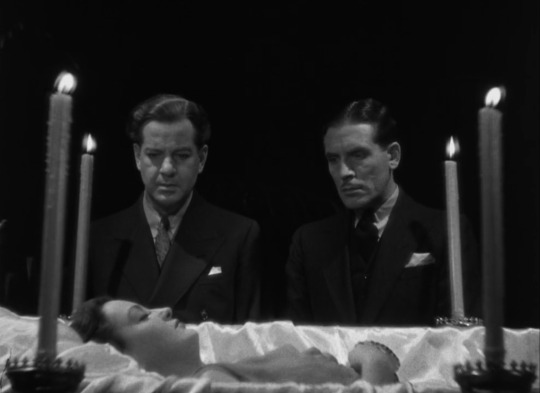
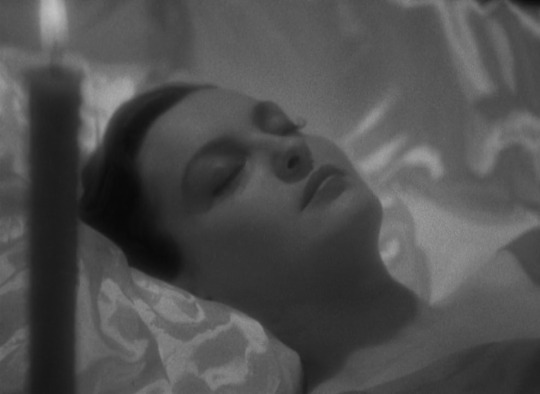
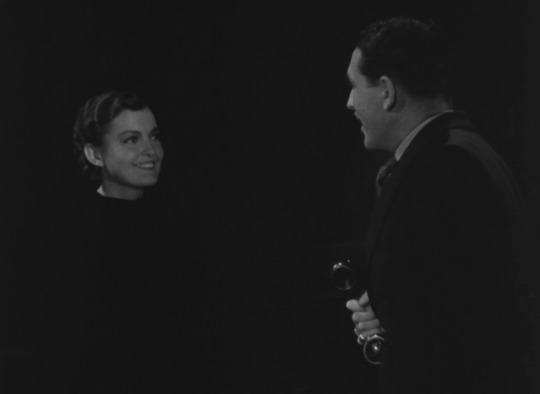



The Sin of Nora Moran (1933), dir. Phil Gladstone
1 note
·
View note
Text

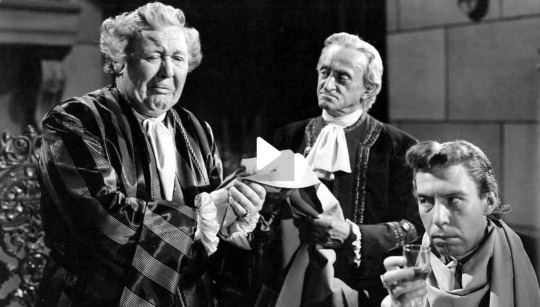
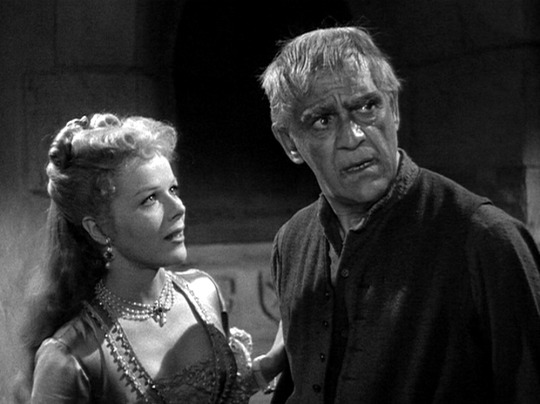
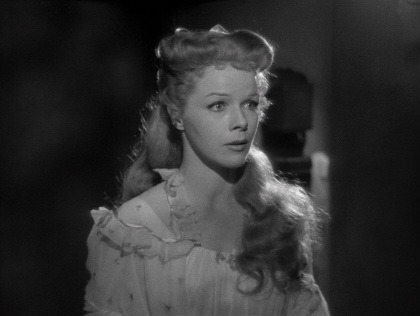


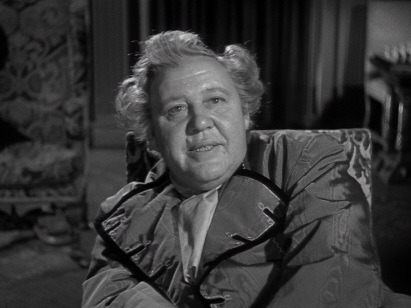
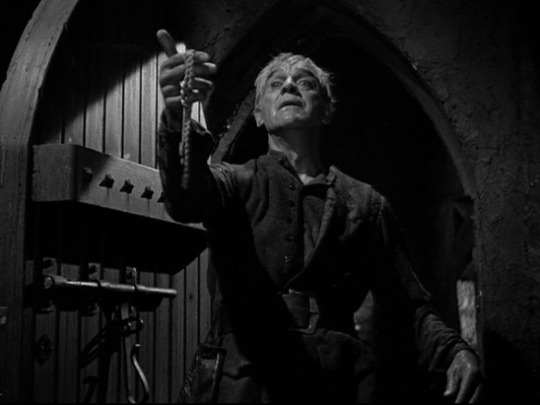


The Strange Door (1951)
"You will find the atmosphere in here healthier for you than it is outside. I'm doing you a favour, believe me."
"I don't like the smell of your generosity!"
#the strange door#robert louis stevenson#american cinema#horror film#jerry sackheim#joseph pevney#charles laughton#boris karloff#sally forrest#richard stapley#william cottrell#alan napier#morgan farley#paul cavanagh#michael pate#charles horvath#eddie parker#the sire de maletroit's door#enormously enjoyable gothic melodrama from the dying days of Universal's classic horror era#Karloff is perhaps a little old to be throwing himself into those acrobatic stunts in the final act‚ and is presumably doubled in#places but it's convincingly done; production design and aesthetic are also perhaps a little cheaper looking than the company's glory days#(there's a hint of tv movie to the visuals in places). but where this succeeds massively‚ and where i have no notes whatsoever‚ is in the#superb performance of Charlie L; his arch villain is a masterclass in louche‚ feline debauchery‚ draping himself over every bit of#furniture‚ fluttering his sparkling eyes‚ rolling his lines around his mouth like he's tasting wine. it's a beautiful study of excess in#every form‚ the very definition of depravity and spoiled opulence. it's a truly magical thing and props this slightly silly melodrama#up as something quite special
0 notes
Text
BRIDE OF THE GORILLA (1951) Reviews and free to watch online
BRIDE OF THE GORILLA (1951) Reviews and free to watch online
‘Her clothes torn away, screaming in terror!’
Bride of the Gorilla is a 1951 American horror-tinged drama film about a jungle rubber plantation foreman who marries the dead owner’s wife. However, he is plagued by a strange curse which transforms him into a gorilla.
Written and directed by Curt Siodmak (Curucu, Beast of the Amazon; Donovan’s Brain; The Wolf Man).
The Jack Broder Productions movie…
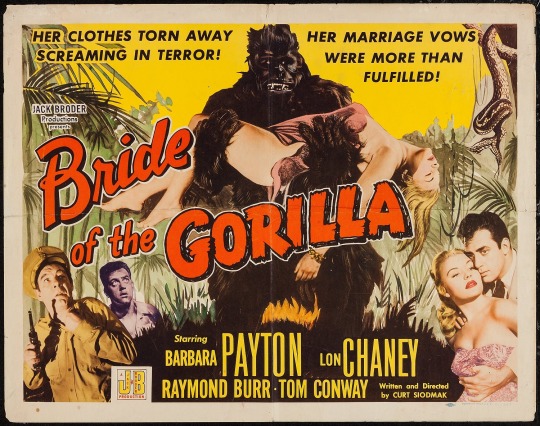
View On WordPress
#1951#Barbara Payton#Bride of the Gorilla#Curt Siodmak#free to watch online#horror drama#Lon Chaney Jr.#movie film#Paul Cavanagh#Raymond Burr#review reviews#Tom Conway
1 note
·
View note
Text
2024 books read
2024 goal: 150 books
january:
1 - heartstopper vol. 1 → alice oseman (reread)
2 - heartstopper vol. 2 → alice oseman (reread)
3 - heartstopper vol. 3 → alice oseman (reread)
4 - heartstopper vol. 4 → alice oseman (reread)
5 - heartstopper vol. 5 → alice oseman
6 - a fragile enchantment → allison saft
7 - some shall break → ellie marney (audiobook)
8 - only if you're lucky → stacy willingham (arc)
9 - over my dead body: a witchy graphic novel → sweeney boo
10 - notes on an execution → danya kukafka (physical & audiobook)
11 - murder on the orient express → agatha christie (reread)
12 - our wives under the sea → julia armfield (physical & audiobook)
13 - the invocations → krystal sutherland (arc)
14 - red string theory → lauren kung jessen
15 - the breakup tour → emily wibberley & austin siegemund-broka (arc)
16 - the name drop → susan lee
17 - the secret of the old clock → carolyn keene (reread)
18 - bright young women → jessica knoll (audiobook)
19 - last call at the local → sarah grunder ruiz (audiobook)
20 - no one can know → kate alice marshall
february:
21 - worst wingman ever → abby jimenez
22 - drop, cover, and hold on → jasmine guillory
23 - with any luck → ashley poston
24 - the atlas six → olivie blake (reread, audiobook)
25 - that's not my name → megan lally
26 - not here to stay friends → kaitlyn hill
27 - this golden state → marit weisenberg
28 - today tonight tomorrow → rachel lynn solomon (reread, annotation)
29 - past present future → rachel lynn solomon (arc, annotation)
30 - the atlas paradox → olivie blake (reread, audiobook)
31 - the guest list → lucy foley (audiobook)
32 - in the market for murder → t.e. kinsey (audiobook)
33 - the neighbor favor → kristina forest
34 - in the mix → mandy gonzalez
35 - everyone in my family has killed someone → benjamin stevenson
36 - the seven year slip → ashley poston
37 - veronica ruiz breaks the bank → elle cosimano (audiobook)
38 - finlay donovan rolls the dice → elle cosimano (audiobook)
39 - the simmonds house kills → meaghan dwyer (arc)
march:
40 - the mysterious case of the alperton angels → janice hallett
41 - the book of cold cases → simone st. james
42 - what the river knows → isabel ibañez (audiobook)
43 - cut loose! → ali stroker & stacy davidowitz
44 - how i'll kill you → ren destefano
45 - the reappearance of rachel price → holly jackson (arc)
46 - when no one is watching → alyssa cole (audiobook)
47 - outofshapeworthlessloser: a memoir of figure skating, f*cking up, and figuring it out → gracie gold (audiobook)
48 - julius caesar → william shakespeare (rerad, audiobook)
49 - the family plot → megan collins (audiobook)
50 - if we were villains → m.l. rio (reread)
51 - alone with you in the ether → olivie blake (physical & audiobook)
52 - disappearance at devil's rock → paul tremblay (audiobook)
april:
53 - shakespeare: romeo and juliet graphic novel → martin powell & eva cabrera
54 - shakespeare: macbeth graphic novel → martin powell & f. daniel perez
55 - shakespeare: julius caesar graphic novel → carl bown & eduardo garcia
56 - shakespeare: a midsummer night's dream graphic novel → nel yomtov & berenice muniz
57 - twelfth knight → alexene farol follmuth (arc)
58 - kill for me, kill for you → steve cavanagh
59 - murder road → simone st. james
60 - everyone on this train is a suspect → benjamin stevenson
61 - listen for the lie → amy tintera
62 - king cheer → molly horton booth, stephanie kate strohm, jamie green
63 - twelfth night (musical adaptation) → kwame kwei-armah & shaina taub
64 - in juliet's garden → judy elliot mcdonald
65 - fat ham → james ijames
66 - death by shakespeare → philip l. nicholas, jr
67 - a good girl's guide to murder → holly jackson (reread)
68 - good girl, bad blood → holly jackson (reread)
69 - as good as dead → holly jackson (reread)
70 - dark corners → megan goldin (audiobook)
#post: 2024 books read#i always get SO excited to start these threads!#and as y'all know i love starting the new year with a reread#so i figured this year it would be heartstopper and then i'd finally get to read heartstopper vol 5#i loved it which is no surprise#i just love these characters so much <3
55 notes
·
View notes
Text
brief primer for the hopeless days, pt. IV
"I felt I should embrace him and tell him not to suffer; that he wasn't alone, that I was his friend and we were living on the same planet, at the same time, in the same country; that now the two of us were in the same park, on the same bench; that human beings should talk to each other, be aware of each other, and love each other; that each man who passes by offers us the chance for companionship and warmth."
Josefina Vicens, The Empty Book (tr. David Lauer)
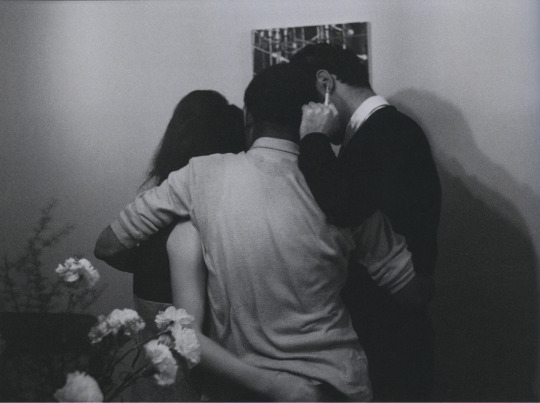
[James Baldwin & Friends, Istanbul. ph. Sedat Pakay]
"On love: always the great gestures, or that it is incompatible with ambition and individuality. Rarely the small gestures, rarely that these make the other accomplishments possible. A work in progress. A chain of kindnesses fashioned a link at a time. Clumsy effort, but effort nonetheless."
Katie Ward, Girl Reading

Paul Eluard, “Gabriel Péri” tr. Gilbert Brown

[Two old men hand in hand rush for taking place for prayer time in the Yeni Cami mosque in Istanbul. ph. Marco Vacca]
"We find comfort only in
another beauty, in others'
music, in the poetry of others.
Salvation lies with others,
though solitude may taste like
opium. Other people aren't hell
if you glimpse them at dawn, when
their brows are clean, rinsed by dreams."
Adam Zagajewski, “Another Beauty”, tr. Clare Cavanagh
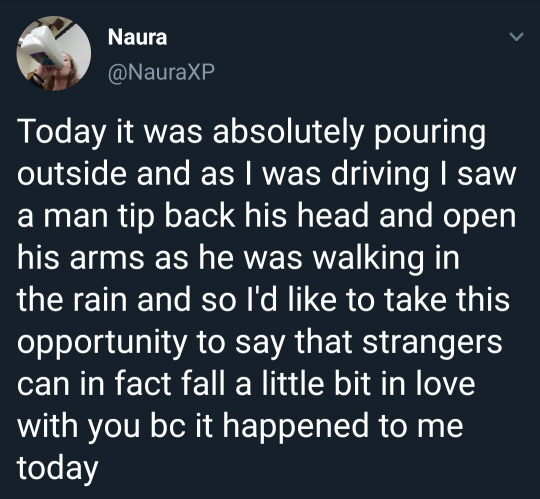
"We are sun and moon, dear friend; we are sea and land. It is not our purpose to become each other; it is to recognize each other, to learn to see the other and honor him for what he is: each the other’s opposite and complement."
Hermann Hesse, Narcissus & Goldmund
"Down the road there is an old man who sits in a chair under the porch of his front door to enjoy the sun. He is very old. In fact, he is dying. And because I know this, every time I pass him I pass the time of day with him. I tell him he is getting brown in the sun. Or he asks me about the price of the vegetables in my shopping bag – once he lived in the country – and I answer him at length and with great warmth. Why do I do this? It is a natural reaction. Soon he will die [and] I want him between now and then, and perhaps even at the moment of dying, to have good thoughts, not of me personally, but of the living, of the world he leaves. I want to give him reason for thinking the best possible thoughts."
John Berger, A Painter of Our Time
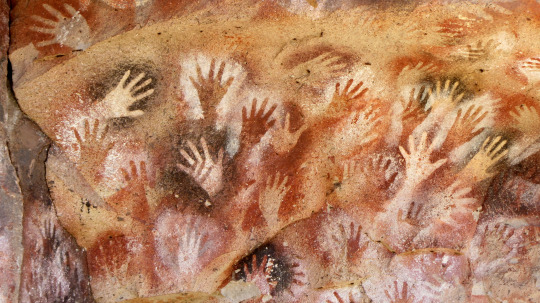
[waves of handprints dating between 7,300 BC & 700 AD, Cueva de las Manos (Cave of Hands), Santa Cruz, Argentina. ph. Pablo A. Gimenez]
“Something strange happens when people are in a small boat, something that rarely happens with people in a car or an elevator, in a train or even a boat large enough to say that you are on it instead of in it. What they experience is the sense of solitude. There are only a few thin boards keeping them from being totally engulfed by the surrounding deep sea. They are lonely, but it’s not an isolated loneliness, because they feel lonesome together, together with others in the boat. This is why a temporary bond forms between people in a small boat. They only have each other, the deep sea is frightening, and small boats are very fragile. Therefore, each one of them becomes the other’s lifebuoy. If you’re not afraid, then neither am I, so we shouldn’t scare each other, and we ought to be nice to each other as long as the water surrounds us.”
Stig Dagerman, A Moth to a Flame (Burnt Child), tr. Benjamin Mier-Cruz

["The Ride Home", submitted by slyburger13 r/AccidentalRenaissance]
"I tried to focus on something small, the smallest thing I could think of. Someone once made this pew I’m sitting on, I thought. Someone sanded the wood and varnished it. Someone carried it into the church. Someone laid the tiles on the floor, someone fitted the windows. Each brick was placed by human hands, each hinge fitted on each door, every road surface outside, every bulb in every streetlight. And even things built by machines were really built by human beings, who built the machines initially. And human beings themselves, made by other humans, struggling to create happy children and families. Me, all the clothing I wear, all the language I know. Who put me here in this church, thinking these thoughts? Other people, some I know very well and others I have never met. Am I myself, or am I them? Is this me, Frances? No, it is not me. It is the others. Do I sometimes hurt and harm myself, do I abuse the unearned cultural privilege of whiteness, do I take the labor of others for granted, have I sometimes exploited a reductive iteration of gender theory to avoid serious moral engagement, do I have a troubled relationship with my body, yes. Do I want to be free of pain and therefore demand that others also live free of pain, the pain that is mine and therefore also theirs, yes, yes.”
Sally Rooney, Conversations With Friends

[”Pale Blue Dot”: photo of Earth taken by the Voyager 1 space probe]

[anonymous, Jan. 15, 2022]

Alain de Botton, Essays in Love
"A single stranger sleeps next to me and I feel like a whole crowd has come in with him. He hasn’t said anything to me, I haven’t said anything to him, but I feel I have nothing else to say to him, nor to hide from him."
Mihail Sebastian, For Two Thousand Years (tr. Philip Ó Ceallaigh)

[tiktok @ shanrizwan]

Michael Onyebuchi Eze, Intellectual History in Contemporary South Africa

[”A full bottle of wine just rolled out from under a subway seat and now these 2 strangers popped it open & are drinking it. This is peak NYC”, ph. Colleen Hagerty]
"Nobody can claim that humanity is in the process of decay without having observed the same putrid symptoms in himself. Nobody can say that humanity is evil without he himself having been part of evil deeds. There is no such thing as unshackled observation. He who lives is the life-long prisoner of humanity and contributes, willingly or unwillingly, to an increase or decrease of the human inventory of happiness and misfortune, greatness and humiliation, hope and despondence […] the fate of humanity is at stake everywhere and at all times, and the responsibility of one life for another is immeasurable."
Stig Dagerman, "Do We Have Faith in Humankind?"
#feeling....things and things and things#compilation#a brief primer for the hopeless days#without tenderness we are in hell#m#x
1K notes
·
View notes
Text
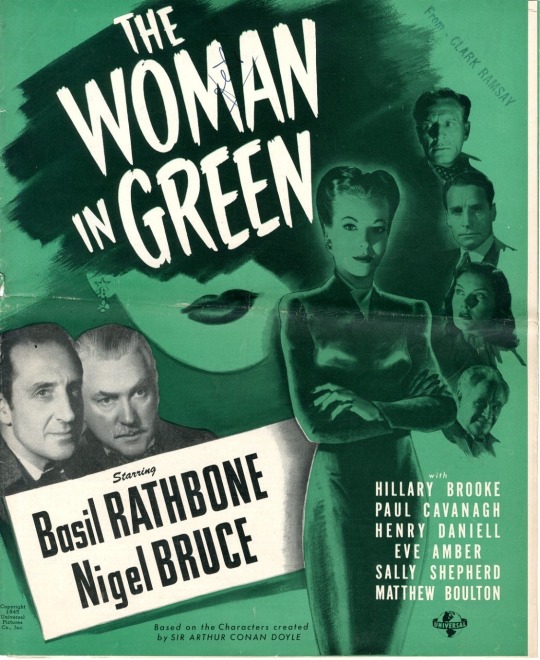

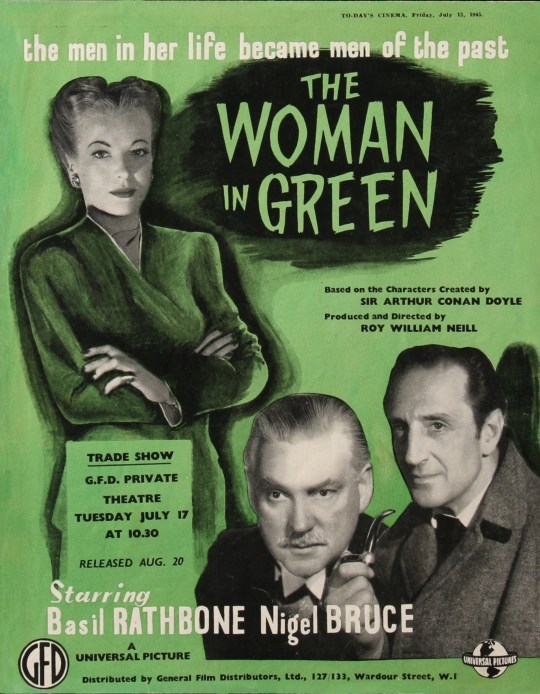
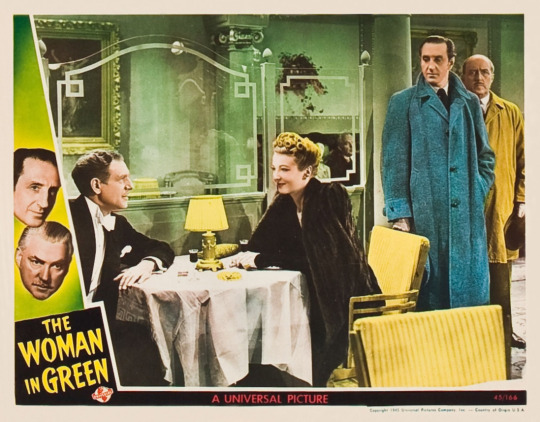
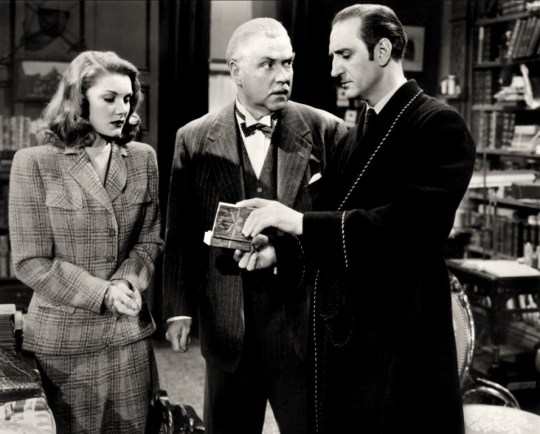
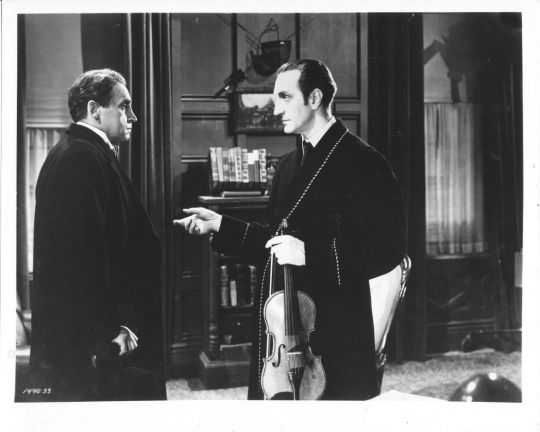
The Woman in Green (1945) Roy William Neill
March 10th 2024
#the woman in green#1945#roy william neill#basil rathbone#nigel bruce#hillary brooke#henry daniell#matthew boulton#paul cavanagh#sally shepherd#invitation to death#invitation to murder#sherlock holmes and the woman in green#sherlock holmes
4 notes
·
View notes
Text
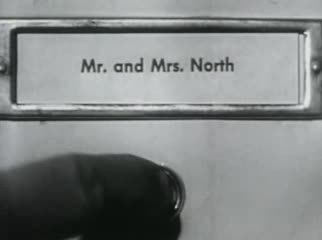
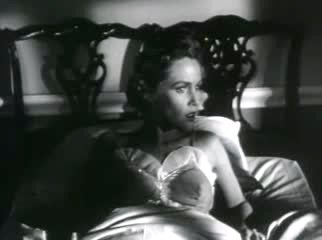
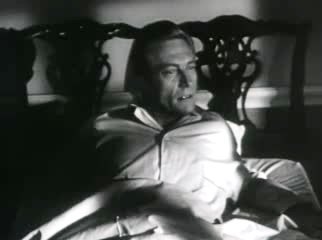
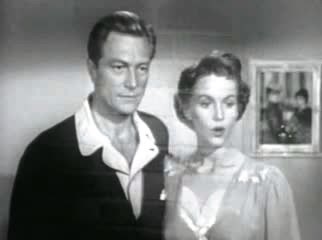



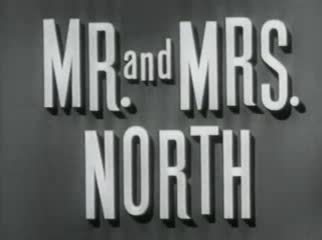

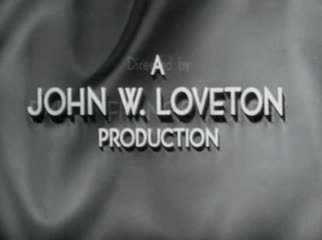

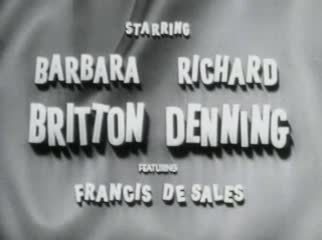
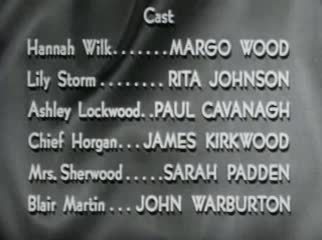
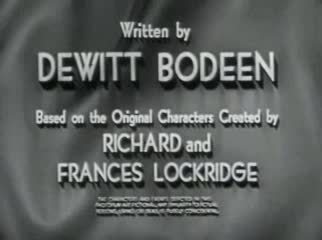
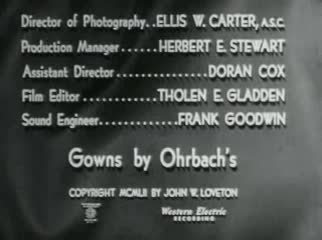
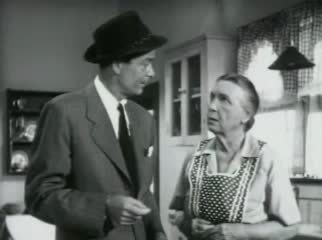
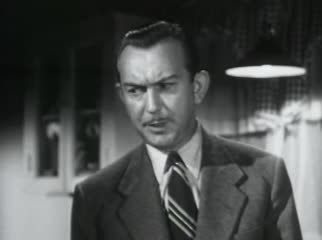



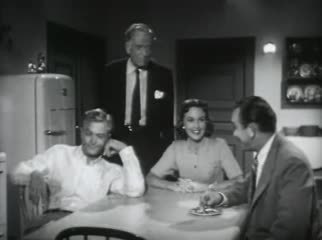
From the Golden Age of Television
Series Premiere
Mr. and Mrs. North - Weekend Murder - CBS - October 3, 1952
Mystery
Running Time: 30 minutes
Written by DeWitt Bodeen
Produced by
Directed by Ralph Murphy
Stars:
Barbara Britton as Pam North
Richard Denning as Jerry North
Francis De Sales as Lt. Weigand
Margo Woode as Hannah Wilk
Rita Johnson as Lily Storm
Paul Cavanagh as Ashley Lockwood
James Kirkwood as Chief Horgan
Sarah Padden as Mrs. Sherwood
John Warburton as Blair Martin
#Weekend Murder#Mr. and Mrs. North#TV#1950's#1952#Mystery#CBS#Barbara Britton#Richard Denning#Francis De Sales#Margo Woode#Rita Johnson#Paul Cavanaugh#Series Premiere
4 notes
·
View notes
Text
youtube
Ludus - Wrapped In Silence
#ludus#wrapped in silence#linder sterling#ian devine#dids#toby#willie trotter#paul cavanagh#lee buick#graham revell#new wave#post punk#art rock#progressive rock#free jazz#peel session#1982#Youtube
1 note
·
View note
Text
Jeff Buckley “was creating something bigger than the song”
Buckley's friends and collaborators tell the full story of his rise
ByTom Pinnock
13th November 2015
In 1993, Jeff Buckley released his first EP: four songs, played live and alone, that introduced an extraordinary new talent to the musical world. Soon, he would create a debut album, Grace, that suggested he could do anything. Buckley, however, wasn’t so sure: “Jeff,” says his best friend, “was incredibly insecure about everything.” From tribute shows for his father, through the clubs, record labels and studios of New York and London, to the salons of his heroes, Jimmy Page and the Cocteau Twins, Uncut charts the tempestuous first moves of a lost legend. Eternal life guaranteed… Story: David Cavanagh. Originally published in Uncut’s June 2013 issue (Take 193).
Jeff Buckley’s Grace tour lasted 21 months, visited Europe four times, racked up almost 150 North American dates and finally ended on March 1, 1996 in Sydney. The venue was a picturesque spot for the last goodbye: a club in a seaside hotel overlooking Coogee Beach. Among those there was Belinda Barrett, a 26-year-old producer for a Sydney film company, who’d become a Buckley fan the year before.
“Jeff’s two tours of Australia were a life-defining time for me and many others,” Barrett says today. “Jeff was someone you wanted to become a devotee of, and I did. He had incredibly loyal followers who really connected with his essence and spirit.” She remembers looking around at gigs and seeing people gaping in astonishment at the stage. Two years on the road had honed Buckley’s setlist into a hypnotic, invocatory, near-holy performance. “There were moments of coalescence in Australia,” recalls his drummer Matt Johnson, “when new worlds in music felt like they were being glimpsed. Moments I’ll remember until my dying breath.”
Buckley was in good humour at the Coogee Bay Hotel’s aftershow party. Belinda Barrett asked him for his autograph. “Steely balance,” he wrote, adding: “Patti Smith”. But behind the smiles, the long tour had taken its toll. Johnson, suffering from exhaustion and depression, was leaving the group; he’d complained bitterly about the ravages of the “rock machine”. Under contract to Columbia, a Sony label, Buckley had committed to one of the most gruelling itineraries of the MTV-dominated ’90s. The promotional conveyor belt stretched from Paris to Perth, and Buckley had had to learn when to acquiesce and when to resist. It may be one explanation why “steely balance” – a phrase more befitting a wine list – popped into his head as he was approached for an autograph.
“We always said to him, ‘If it gets overwhelming, let’s take a breath,’” says Paul Rappaport, Sony’s former vice-president of artist development. “But you have to understand, people at the company were constantly fighting over him. ‘He’s got to go to France next.’ ‘No, he’s got to go to Australia!’” The conveyor belt paused; a Sydney hiatus in a New York story that had begun five years earlier.
It was a tale straight out of Dick Whittington. Buckley’s first visit to New York, in 1990, had ended with the 23-year-old Southern Californian fleeing Manhattan in despair after being accused of shoplifting. But in the spring of ’91, the bells coaxed him back. A phone call from Brooklyn invited him to sing at a tribute concert for his father, a man he’d hardly known. This time his arrival in the city would have an impact. Soon everyone from Marianne Faithfull to Allen Ginsberg would hear about him.
Held in a Brooklyn Episcopal church, “Greetings From Tim Buckley” was Jeff’s equivalent of a debutante’s coming-out party. He sang four of his father’s songs in the familiar Buckley vocal tone and range, dumbfounding anyone who’d presumed Tim’s multi-octave voice to be unique. The key moment came in “I Never Asked To Be Your Mountain” when the lighting designer projected Jeff’s head onto a stained glass wall at the rear of the church. It was, says the show’s producer Hal Willner, something akin to a visitation from Jesus. After that, there seemed little to keep Jeff in Los Angeles.
“He became a sponge of New York culture,” says Willner, who took him under his wing. “He jumped into the arty circle initially. I took him to see the Mingus Big Band at the Vanguard, and another night he went to see Sun Ra.” Buckley based himself in the Lower East Side, where he found “a village of freaks like himself” (in the words of actor-musician Michael Tighe, who would later join his band) and lived a monastic existence, burning incense and contemplating a small Bodhisattva on his windowsill. “People who were attracted to New York were not of the norm,” Willner adds. “They came here because of what they could do, which they couldn’t do anywhere else.”
Buckley cut his hair short and sang in Gods And Monsters, a virtuoso raga-rock outfit led by former Captain Beefheart guitarist Gary Lucas. At first, the collaboration was fruitful. Buckley wrote lyrics for a pair of Lucas instrumentals (“And You Will”, “Rise Up To Be”), turning them into “Mojo Pin” and “Grace”. Lucas, angling to sign Gods And Monsters to the BMG-financed Imago Records, envisaged success on a grand scale. Buckley – 14 years his junior – was his final jigsaw piece, his Robert Plant, his Jim Morrison. Gods And Monsters organised a March ’92 showcase gig at the same Brooklyn church where Buckley had honoured his father a year before.
“I was so pissed off at Gary,” remembers Kate Hyman, an Imago Records A&R executive. “Jeff was amazing – you could tell he was a star. But every time he came to the front of the stage, Gary would jump in front of him and play all over him.” Buckley began to feel mismatched with Lucas but was unwilling to confront him, a typical trait according to friends. The band’s bassist, Tony Maimone, proved easier to confide in. “He says, ‘Y’know, Tony, I’m not sure if I’m gonna continue with this,’” Maimone recalls. “It was a little bittersweet. He was kind and gentle, but I got the impression we weren’t going to be playing with him for much longer. He had his own vision to pursue.”
Steve Abbott, a New York-based Englishman who owned a London indie label (Big Cat), saw Gods And Monsters play in a club. Abbott immediately identified Buckley as their most interesting member. “He looked quite sulky and moody, whereas Gary was very in-your-face. Jeff came back on at the end and did a song by himself. It was one of those moments where you haven’t quite heard anything like it. It didn’t fit into any musical format. I spoke to him later and he told me he had some gigs at a place called Sin-é.”
Anyone who attended Buckley’s concert at London’s Shepherd’s Bush Empire on March 4, 1995 will remember the dreadlocked black man who walked onstage to duet with him on “What Will You Say”. His name is Chris Dowd and he’d like to delete that night from his memory (not to mention from YouTube) – he admits that he was horribly drunk. Dowd, a founder member of LA ska band Fishbone, was one of Buckley’s closest friends. After Dowd left Fishbone, he and Jeff lived together for a time in New York, Dowd fielding phone calls for Jeff while he was out. “It would be Chrissie Hynde or Elvis Costello. ‘Hello, is Jeff there? Tell him Elvis called.’ ‘Er, OK.’”
Buckley had become the darling of Sin-é. Sin-é was a café in the East Village run by an Irishman (its name, pronounced “shin-ay”, is Irish for “that’s it”). It had a small bar and no stage. Buckley appeared at Sin-é almost every week in 1992, leaning against a wall and singing, accompanying himself on a Telecaster plugged into a little Fender amp. It was casual and informal (nobody paid to get in), but the customers agreed that something extraordinary happened when he sang. His voice, which he was modifying all the time, was sensual and gender-ambiguous. It could make people cry. It could make them feel elated. It could – and he would insist on this – eliminate conversation from the room. He alluded to his Sin-é period in a 1995 interview with Melbourne’s RRR radio station: “What I’m trying to do is just sing what comes to my body in the context of the song. And if you go by the emotion of the song, it’s almost like stepping into a city. Cities have certain customs and rules and laws you can break, and that’s what I was doing.”
“He would do mostly covers,” Michael Tighe told Uncut in 2007. “Nina Simone. Nusrat Fateh Ali Khan. I was very impressed with his knowledge. I thought he had really good taste. What really sent me was when I heard him do ‘Hallelujah’. That’s when I felt I was in the presence of genius. That made me see white flashes.” Buckley had heard Leonard Cohen’s hymn-like “Hallelujah” in a version performed by John Cale on a Cohen tribute album. It had become a feature of Jeff’s floating Sin-é repertoire – “Strange Fruit”, The Smiths’ “I Know It’s Over”, Bob Dylan, Edith Piaf – which grew by the week.
“I remember him opening once with ‘Sweet Thing’ from Astral Weeks and closing with ‘The Way Young Lovers Do’ from the same album,” remarks Nicholas Hill, a radio DJ for New Jersey’s WFMU. “To have the gall even to attempt something from Astral Weeks – usually that doesn’t go over great. But this guy could reinterpret songs, sing them completely differently every time. He was investigating where they could take him. He was creating something bigger than the song.
For the first three minutes, you wouldn’t even know what the song was.”
Transported but relaxed, Buckley would talk, do impersonations, comment on what the clientele was wearing (“Nice sandals”) and sing adverts and jingles that he remembered from his childhood. “The motherfucker was so funny,” says Chris Dowd. “He was like… if somebody took Lenny Bruce and Jim Carrey and mixed them into one person. A really dark sense of humour combined with an incredible ability to mimic everything. He had a photographic memory for music.” Nicholas Hill concurs: “Everyone was drawn to Jeff’s personality. He was extremely magnetic and charismatic. Men fell in love with him. Women felt he was their future husband. It was just like, ‘Holy shit, this is a major dude.’ There was just no denying it.”
“Sin-é was this teeny little place with a couple of tables and chairs,” says Kate Hyman, “but it was a magical, fun time because there was no pressure. I was an A&R person, but I was enjoying listening to Jeff and not having to think about the business.” Steve Abbott of Big Cat, who lived a two-minute walk from Sin-é, chatted to Buckley one night and was intrigued to find they shared a love of The Groundhogs – as well as a taste for Guinness. Abbott said he’d like to do a record deal. Hyman, too, wanted to sign Jeff to Imago at some point. But things were moving quickly. One night Hal Willner showed up at Sin-é with a friend named Steve Berkowitz, an A&R man for the major label Columbia.
Abbott: “I left New York to go touring with Pavement, who were on my label. Within the week and a half that I was away, the record industry discovered Jeff Buckley. He now had a lawyer. There was one ridiculous night where I saw three limos outside Sin-é. You didn’t see limos in the East Village. This was when we still had muggings and killings, before the area was gentrified. I couldn’t even get in the door of Sin-é. I kept getting pushed back out again.”
Hyman: “When the limos started showing up, it was funny and silly and none of us took it seriously. But suddenly there was a bidding war. I was in there for a minute, but I was at a small label and there was no way we were going to beat out the majors.” There was another stumbling block for Imago that Hyman is slightly reluctant to reveal. “Well, I guess it doesn’t matter now,” she says. “My boss, Terry Ellis – I took him to see Jeff and his comment was, ‘He’s really good, but he has no charisma.’ He actually said that. Really.”
Buckley’s Sin-é apprenticeship didn’t end in formal goodbyes – he appeared there many more times, including a gig with his band shortly before recording Grace – but the innocence had been lost. “His initial crowd were disappointed because they couldn’t see him in a club with eight other people,” says Willner wryly. It was too late. The cat was out of the bag.
Buckley signed with Columbia Records on October 29, 1992. The lure was a promise of artistic freedom, but their historic catalogue (Dylan, Springsteen, Cohen, Cash) inevitably influenced his decision. It took Sony’s Paul Rappaport all of five minutes at Sin-é – Buckley was singing a Van Morrison song at the time – to be convinced that Jeff was potentially a figure of equal stature.
Rappaport: “Donny Ienner [Columbia president] said to him, ‘I know you’re getting offered more money by Clive Davis [Arista] but I’m not going to give it to you, because it’ll mess your head up. I’ll give you half of that, and I’ll make a deal that we won’t pressure you.’” Sure enough, the first thing Columbia did after signing Buckley was… absolutely nothing. They left him alone for months. A hands-off policy was regarded as essential to his development.
“He still hadn’t written many songs,” Rappaport points out. “We had no idea, really, whether he could write or not.”
Brenda Kahn, a ‘punk-folk’ singer-songwriter on a Sony label called Chaos, was introduced to Buckley by her A&R man. She and Jeff giggled at the multi-million-dollar Manhattan world they’d accidentally infiltrated. “We both felt like, ‘What are we doing here? We belong on the Lower East Side.’ We were both in a giddy sort of realm.” They became friends (and briefly lovers), Kahn finding Buckley surprisingly precise – she uses the word ‘intentional’ – about all aspects of his creativity. He already knew the importance of leaving a legacy. He talked of needing to improve his lyrics. Kahn: “I was in awe of his abilities. Have you heard his recording of ‘Satisfied Mind’? The way his voice and guitar work together? I was like, ‘God! I can turn a phrase, but look what you can do.’ And he was like, ‘Sure, I can sing the crap out of anything, but how do I say it?’”
It was in Buckley’s nature to fluctuate between resolve and hesitation. On top of his ongoing worries about being sold to the public as Tim Buckley’s son, he was anxious to be perceived as a fan-based, credible artist, not some major-label hype. It was entirely characteristic of him to phone Nicholas Hill, who ran a 7” label, and tell him he wanted to record six indie singles immediately. It was also characteristic of him to change his mind and forget the conversation had ever happened.
Chris Dowd: “Jeff was the kind of person who was incredibly insecure about everything. His ability to play his instrument. His voice. When I first met him, he didn’t think he was good-looking. It was, ‘Women don’t like me,’ all this stuff. Later on, he was embarrassed to be voted one of People magazine’s ‘30 Most Beautiful People’. I think one part of him secretly dug it, but the other part – the artist, the musician – was like, ‘What a fucking goofy fag you are.’”
“He was a bit dorky,” says photographer Merri Cyr, who shot the covers of Live At Sin-é and Grace. “That’s what made him charming. I think he was initially unaware of the effect he had on other people. Later, though, he became much more savvy about how he behaved and presented himself. I remember he acquired a stalker or two. He was scrutinised and was in the public eye. His demeanour changed over time. Perhaps he became a bit suspicious of people.”
Live At Sin-é was recorded in July ’93. Buckley and Columbia agreed that a four-song live EP was a smart, subtle way to introduce him to the public and the media. Following several planning meetings at Columbia, he was about to spend six weeks at Bearsville Studios in Woodstock recording his first album. Chris Dowd: “Steve Berkowitz was being very protective of him. The pressure was probably more on Steve than Jeff. But the other thing is, Jeff could walk into a meeting with Donny Ienner and all the Sony people would be mesmerised by him. There’s no other word for it. They knew they’d signed a guy who was going to have a prolific, 30-year career. Fishbone were on the same damn label and we couldn’t get them to do anything. But Donny Ienner would have tattooed Jeff’s name on his penis if Jeff had told him to.”
With studio time at Bearsville booked, Buckley told producer Andy Wallace (Nirvana, Rollins Band) that he wanted to make a ‘band’ album. Wallace: “I thought that was a good idea. Over the course of a career, you want to reach out to more complex musical presentation, and he felt he wanted to do it right away.” Mick Grondahl (bass) and Matt Johnson (drums) were hand-picked because Jeff felt an affinity with them on both personal and musical levels. “He was very particular about who he was looking for,” says Nicholas Hill. “He wanted guys his own age who didn’t have baggage, who weren’t hot session guys. He’d done all that with Gary Lucas.”
Buckley, a brilliant guitarist, recorded most of the album’s guitar parts but invited Lucas – in a conciliatory gesture – to play on “Mojo Pin” and “Grace”. Buckley-written material rubbed shoulders with covers of “Hallelujah”, “Lilac Wine” and Benjamin Britten’s “Corpus Christi Carol”. It was rock meets Sin-é.
Chris Dowd was one of the first to hear it. “He had a cassette. He put on ‘Lilac Wine’. He was like, ‘I’m going to play you something… OK?’ I could see in his eyes he was insecure about what I was going to say. I started crying when I heard it. There I am, his fucking best friend, and he’s made this album and he doesn’t even believe how good it is. I was like, ‘What are you worried about, man?’ Either a song showed his depth of understanding as a musician, or it showed his sensitivity as a human being. There wasn’t a song out of place. That album became a sonnet for the tortured.”
Live At Sin-é was released in America in November ’93. But Columbia’s counterparts at Sony in London declined to follow suit, feeling the EP had no commercial potential. Instead it was given a UK release by Big Cat, which had signed a licensing deal with Columbia. The next step was to bring Buckley over to promote it. “We knew he was very good live – that’s how he was sold to us by the American company,” says Luc Vergier, a Frenchman who ran Columbia’s marketing in London. “We decided to put him on the road, on his own, for a short tour.”
Buckley arrived in the second week of March ’94 with his Telecaster and Fender amp. He played in Sheffield, flew to Dublin and then hit London for a series of gigs that are still spoken of in hallowed terms 19 years later. On one particular Friday night, he gave a three-hour performance in two different venues, beginning at Bunjies, the folk café, where he handed everyone a flower with mock solemnity as they took their seats. When Bunjies closed, Buckley led the audience (still with their flowers) to the nearby 12 Bar Club where he played for a further 90 minutes. He took requests, accepted a joint and sang until he almost collapsed off the stage. “Live At Sin-é came out on the Monday,” recalls Abbott, “and sold nearly 6,000 on the first day. The word of mouth from those two gigs was crazy.”
Buckley returned to the UK in August with his band. Five days after Grace was released, they played the Reading Festival in a mid-afternoon slot beneath Cud and Echobelly. In hindsight, their lowly billing symbolises the size of the mountain Buckley still had to climb, and the extent to which Grace would struggle to assert its identity – let alone its audacity – in the year of Parklife, Alice In Chains and Hootie & The Blowfish. There was a unspoken subtext to the ensuing 21-month tour: Columbia’s abiding disappointment with Grace’s sales in America.
“It never broke in an immediate way, the way other bands’ records did,” Mick Grondahl told Uncut. “It grew. To us, that was the point. We didn’t want to do something fashionable. We wanted to do something that had a nice feel to it. Feel was the key word. Never mind that it was this style or that style. It was more about, how does it feel? How does it touch you?”
One man who loved Grace was Jimmy Page. There was arguably no-one whose opinion Buckley valued more. He’d sung Zeppelin songs at Sin-é. He’d amused Tony Maimone at Gods And Monsters rehearsals by thumping out “When The Levee Breaks” on the drums. Buckley’s music on Grace, and in his band’s live shows, embraced androgynous vocals, ’70s rock, power chords and heroic drumming. One might even say there was a transference of Zeppelin energy taking place, a blessing or endorsement from afar, from the older men to the young. When Page and Buckley met, it was clear they understood each other on a profound level.
“Jeff told me they cried,” says Chris Dowd. “They actually cried when they met each other. Jimmy heard himself in Jeff, and Jeff was meeting his idol. Jimmy Page was the godfather of Jeff’s music. A lot of people thought Tim was the influence on Jeff, but it was really Zeppelin. He could play all the parts on all the songs. John Paul Jones’ basslines. Page’s guitar parts. The synthesiser intro on ‘In The Light’ – he could play it on guitar and it would sound just like it. And then he would get on the fucking drums and exactly mimic John Bonham.”
Perhaps Page also recognised in Buckley – whom he considered the greatest singer to have emerged in 20 years – a rare courage, an elemental intrepid streak, a fearlessness and a gung-ho spirit that allowed him to reach heights of expression that many of his ’90s contemporaries were too self-conscious to risk or too uninspired to imagine. In that sense, Buckley was a true son of Zeppelin. Matt Johnson, in a comment that is all the more poignant given the circumstances of Buckley’s death, remembers him as an adventurer in music and in life – a man “well suited to jumping into raw experience – unprotected, raw experience. He seemed to have a quicksilver flexibility and an ability to adjust.”
Since the day his body was found in the Mississippi River in June 1997, appreciation of Buckley has soared (“Grace was way more successful posthumously,” Johnson notes) and in many people’s eyes he’s become the timeless heritage artist that Columbia believed they’d signed in 1992. Others feel he was only just finding his feet. “It would have been amazing to hear his fourth or fifth album,” says Brenda Kahn. “I don’t think his music had been totally fleshed out yet.” Hal Willner thinks about that fifth album, too. What conceivable directions would Buckley’s voice and guitar have taken?
“I have to say he’s still hard for a lot of people to listen to,” Willner continues. “His mom, Mary, got me to edit together some tapes that he made in his early New York days. The stuff with Gary. And what was interesting about those tapes – what was really heartbreaking – was hearing him sing the way he sang when he came to New York. He changed it later… became less studied. But it’s hard to listen to it. It’s too sad.”
Buckley left his New York home on June 1, 1994 to tour Grace in America. “Keep the next year free,” the band were advised by George Stein, Buckley’s lawyer-manager, a comment they would later laugh about. First France became enchanted with them (two tours in ’95) and then Britain wanted them back. And even when they’d toured America twice, three times, and been to Japan, there was always Australia waiting in the distance.
8 notes
·
View notes
Text
#OTD in Irish History | 5 July:
1581 – The Wexford Martyrs were Matthew Lambert, Robert Myler, Edward Cheevers, Patrick Cavanagh and two unknown individuals. In 1581, they were found guilty of treason for aiding in the escape of James Eustace, 3rd Viscount Baltinglass and refusing to take the Oath of Supremacy which declared Elizabeth I of England to be the head of the Church. On 22 September 1992 Pope John Paul II proclaimed a…
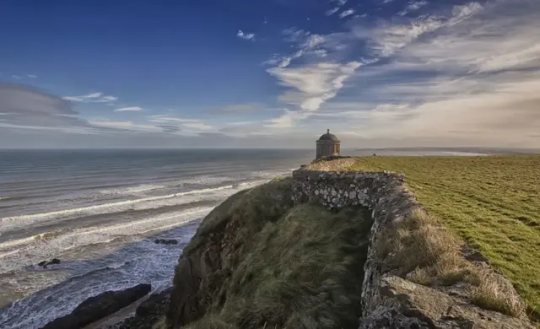
View On WordPress
#irelandinspires#irishhistory#OTD#5 July#Aerial View of Mussenden Temple#Castlerock#Co Derry#Coleraine#Drummer Conflict#Ireland#Irish Civil War#Irish History#North of Ireland#Today in Irish History
8 notes
·
View notes
Text

Eddie Munson { Joseph Quinn }
Steve Harrington { FC: Joe Keery }
Billy Hargrove { FC: Dacre Montgomery }
Carter Harrington { FC: Andrew Garfield }
Kairi Sykes { FC: Lana Condor }
Caspian Hargrove { FC: Dacre Montgomery }
Nikita Thorne { FC: Danielle Campbell }
Dakota Harrington { FC: Grant Gustin }
Twyla Luna Nyx { FC: Teagan Croft }
Noah Sykes { FC: Ross Butler }
Mike Wheeler { FC: Finn Wolfhard }
Chrissy Cunningham { FC: Grace Van Dien }
Violet Munson { FC: Emilia Jones }
Roxxi Hargrove { FC: Sabrina Carpenter }
-----
Peter Pan { FC: Robbie Kay }
Blue { FC: India Eisley / Velociraptor }
Draco Malfoy { FC: Tom Felton }
Jack Sparrow { FC: Johnny Depp }
Daryl Dixon { FC: Norman Reedus }
Brian Kinney { FC: Gale Harold }
Luke Patterson { FC: Charlie Gillespie }
Reggie Peters { FC: Jeremy Shada }
Alex Mercer { FC: Owen Joyner }
10K { FC: Nat Zang }
Barry Allen { FC: Grant Gustin }
Paul ‘Jesus’ Rovia { FC: Tom Payne }
Harrison ‘Harry’ Wells { FC: Tom Cavanagh }
Ryker Kaiden Phoenix { FC: Hero-Fiennes Tiffin }
Raena Lily Potter { FC: Katie Douglas }
Jace Corbin Wells { FC: Thomas Doherty }
Parker Caspian Moore { FC: Curran Walters }
Sereia Acqua Celestial { FC: Indiana Evans }
Akira Skye Rayne { FC: Leda Muir } {Will probably have to zip file you my pics of her}
Galexia Cordelia Malfoy { FC: Emily Osment }
Laney Rayne Rivers { FC: Taylor Momsen }
Phoenix Akira Storm { FC: Malese Jow }
Kiani Jaidyn Parker { FC: Dove Cameron }
Leilani Akela Parker { FC: Ashley Benson }
Jasper Kyrie Parker { FC: Thomas Dekker }
Storm Lokison { FC: Thomas Doherty }
Taylor Kinsey Bourne { FC: Maggie Lindemann }
Don’t have to really worry about, I was just copied a pasted off discord.
Matteo Alister Drakos { FC: Felix Mallard }
Makena Taylor Monroe { FC: Jeon Jiwoo }
Kataleya Rose Bynes { FC: Vanessa Morgan }
Jupiter Morgan Winters { FC: Cole Sprouse }
Niko Thaddeus Silas Thorne { FC: Johnny Depp }
3 notes
·
View notes